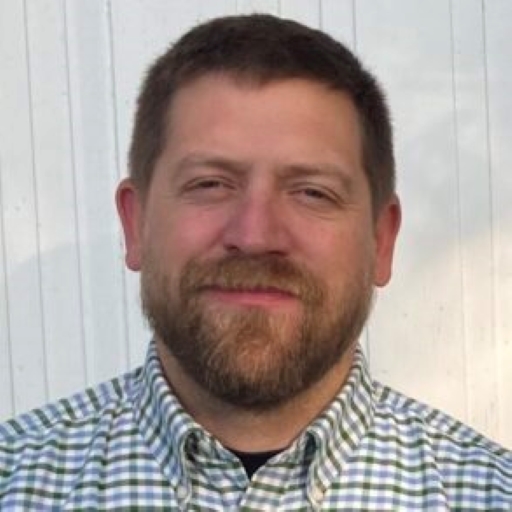Also: recognizing Roger Fox, trucks cause sunny-day outages, winter storm preparation
Co-op Month
Louis: I grew up in Adamant, which was kind of a center of the early cooperative movement generally, so co-ops were just a normal part of life for me. The Adamant store, which is the oldest continually operating food co-op in the country, is what a store was. The Adamant Co-op has a particular relevance to me now that I work at a co-op that’s down the road and serves it. It’s still the center of the village I grew up in and live in today.
Vermont has a long history of cooperatives formed by residents, particularly farmers, in the 1800s and 1900s to provide services they couldn’t rely on other entities to provide. These include milk co-ops, food co-ops, electric co-ops. It’s an important aspect of the development of Vermont in that period. Washington Electric, founded in 1939 and still operating today, is part of that history and legacy.
Two important components of cooperatives are first, banding together to provide a service that otherwise would not be available, and second, having democratic financial and governance structures and each member paying into that. Here, Washington Electric’s Board is elected by members, and through capital credits, each member is returned their payments that exceeded our operating costs in any particular year. Though to be fair, it sometimes takes several decades to do that.
Steve: Co-ops are formed by a group of people who have gotten together to work toward a common goal. The ethic of a cooperative is that each member fairly and as equitably receives services according to the stake each member puts in. That’s quite different from an investor-owned utility that reports to its stockholders. When investments in improvements are made by investor-owned utilities, their resources and appetite for risk are different. Co-ops try to be fair, and we may not always find it possible to take the same risks with our members’ stake. Each change has to be made by first asking, “how will it benefit as many members as possible?”
Louis: There’s a twofold challenge facing Washington Electric and electric co-ops around the country. One is the growing power of people to manage their own electrical use and generation, whether net metering or batteries or generators. All of that is positive in many ways, but it also means the cooperative concept hangs together less, just like in any situation where people taking more power over their private affairs impacts collective participation.
The other is the rate of technological and infrastructure changes in the electric business. To Steve’s point, co-ops are generally cautious, as they should be, and while that’s good when you’re responsible for other people’s money and an essential service, it’s not the fastest structure for adopting tech changes and innovation.
Looking ahead to advanced meters
Steve: WEC is taking steps toward implementing an advanced metering system. This is a first step in modernizing our grid, and we believe it to be essential for managing it efficiently. While providing some immediate benefits, it will also allow WEC to offer services in the near future that we may not precisely envision now. It is technology with multiple uses, like a Swiss army knife. That’s not just in utility operations, like managing load and making outage detection more efficient, but in allowing more agency to each and every member if they choose to make use of it, like targeted rates for EV users who are willing to charge at prioritized times, or for members who might want to manage their power to reduce their costs. Clearly, advanced meters can’t do this all by themselves, but being able to directly measure the power usage anywhere on our system at any instant is key to any future programs we introduce for our members.
Louis: You’re exactly right, Steve. If we are to restore outages at the speed that our members expect, and if we are going to offer the financial and power management that people expect, and if we’re going to be viable in the next century, we’ll need to advance many systems, but this is the first one.
Recognizing Roger Fox
Steve: Roger Fox, our Vice President, is retiring from the Board this Fall. He just received the George Aiken Award from the Northeast Association of Electric Cooperatives for his many contributions to WEC. I should also point out that former Board President Barry Bernstein received this award some years ago for his distinguished service.
I’ve been on the Board since 2015, and I’ve come to appreciate Roger’s deep knowledge of this Cooperative and all of our energy stakeholders. He’s been exceptionally diligent in ensuring that we operate according to our principles and our policies. That function, whether it comes from Roger or the Board as a whole, is essential to a policy-driven organization. I appreciate his deep commitment to the cooperative, and he backs it up with his deep knowledge of what a cooperative does and what WEC’s culture is.
Louis: In my time at the Co-op, every process Roger has been part of has been better, and the outcomes are better, because of his engagement in it.
Truck accidents causes outages
Louis: Accidents happen. We’ve had two recent incidents of trucks hitting WEC’s power lines. Given the momentum of a big truck, not surprisingly they’ve done quite a bit of damage to lines and poles, and caused outages. Most recently was an accident on September 12 in East Montpelier, which caused 1500 members to lose power for several hours. The reason so many members lost power was that the truck damaged a subtransmission line that brings power from the substation to the Maple Corner area. It was frustrating for some members, because it was a beautiful sunny day with no wind. Members questioned why there was an outage with no weather to cause it. The answer is, accidents happen.

WEC is taking steps toward implementing an advanced metering system . . . It is technology with multiple uses, like a Swiss army knife.
– Stephen Knowlton
I’m very grateful to our line crews. I went out to take a look, and thought it was going to take a day or two to get it done. Thanks to the hard work and dedication of the crews, it took under four hours to restore power.
Steve: WEC is a competent utility with good repair crews and they know what they’re doing. When we have an outage, whether due to weather or accident, I’m confident it will be taken care of as quickly and safely as possible.
Louis: They do amazing work. This time in great weather, but mostly in lousy weather.
Winter weather preparation tips
Louis: In general, Washington Electric members are very aware that they live in a rural territory, and that means there’s a different level of service than a suburban or urban area would have. We have an obligation to provide the highest level of service we can while maintaining reasonable rates. Most of our members recognize the level of service you get in a rural area, including law enforcement, fire, et cetera, is different. We have a responsibility to prepare and to take responsibility for our neighbors as well.
In last year’s Christmas storm we saw many cases where members helped out neighbors who needed it. That is a less tangible part of our annual preparation checklist, but it’s important to know your neighbors and who might need extra assistance.
Steve: WEC keeps a list of members with medical needs, don’t we?
Louis: I’m glad you bring that up, Steve, because we do maintain a list of people with severe medical needs. It’s important people know that’s less about prioritizing where we turn the power back on first, and more that we know where folks in those situations are, so we can check on them or assist town and state officials in checking on them.
It doesn’t mean we can restore power to them more rapidly. Every piece of line between the substation and their house needs to be energized before their house can get power again. So it’s important we know where they are so we can make sure someone is tending to their needs.
I encourage everyone with a current or previous medical situation to reach out to us to update their status on our list. Let us know about a new situation, and also let us know if you or a family member no longer has a medical need, because that outreach slows down our response.

We do maintain a list of people with severe medical needs. It’s important people know that’s less about prioritizing where we turn the power back on first, and more that we know where folks in those situations are, so we can check on them.
– Louis Porter
I also have a few requests for reporting outages. We’ve seen a growing trend of people misreporting outages: reporting blinks as outages, and reporting a tree on the line where there isn’t one. These are well-intentioned misunderstandings. Some people think they might get a response faster, and we depend on members reporting accurately to us what they see and hear. But inaccurate reports are an impediment to our response.
If you see a tree on the telephone wire and think it is an electric wire, it’s a well-intentioned mistake, and that’s totally understandable. We just ask people to provide as accurate and detailed information as they have. Don’t ever put yourself in danger in order to do that. If it’s a blink, report it as a blink. If it’s a tree on the line, report it. You can always send a picture, though it’s not necessary.
Steve: It may sound obvious, but here is my simple plan for preparing for winter storms: If you have a gasoline generator, take it outside and test it soon. And make sure it has fresh gas.
People who have propane backup generators can also make sure they have sufficient propane at the beginning of winter, since I’m told that getting propane delivered in the middle of an outage can be difficult and/or expensive.
Louis: And this is up to each member, but a backup source of heat that’s not dependent on electricity is always a good idea when you live in a rural area in particular.
See WEC’s winter preparation tips here: wec.coop/power-lines-safety/ (then scroll down to “Power Outages”).
